Trump & Neocons Want to Destroy Iranian Society – Trita Parsi
Trump and the neocons who run his foreign policy, want to use the pandemic to further their plan of ruining and weakening Iran. Will they use a confrontation with Iran as an excuse to postpone elections? – Trita Parsi joins Paul Jay on theAnalysis.news podcast
Transcript
Paul Jay
Hi, I’m Paul Jay. Welcome to theAnalysis.news podcast. The Trump administration has made one of its highest foreign policy objectives weakening, and if possible, bringing down the government and ruling circles of Iran. Making America great again include strengthening its role as the global hedgeman, which means being dominant in every region. Iran stands in the way of that. Iran was also the target of the Bush-Cheney administration, who could not abide a regional adversary with the capability of firing ballistic missiles at American troops and allies.
Obama’s deal with Iran to limit its ability to develop nuclear weapons technology was a break with the neo-con agenda of regime change in Iran. It was an acceptance of Iran as a regional power, a role that was strengthened by the disastrous Iraq war.
Trump abrogated that agreement and has even increased sanctions during the Covid crisis, which makes the suffering of the Iranian people worse. Trump, on May 28, essentially scrapped the last remnants of its cooperation with the 2015 Iran nuclear deal by ending sanction waivers that allowed Russian, Chinese and European companies to engage in civilian nuclear cooperation with Iran. On May 28, Iran’s Islamic Revolutionary Guard unveiled scores of new and upgraded defensive speedboats with a warning to the U.S. that it won’t shy away from challenging American naval power. According to the semi-official Tasnim News Agency, the guard said, “Today we announce that wherever the Americans are, we’re right there beside you. And in the near future, you will sense us even more.” Tensions almost spilled over into outright conflict after the U.S. killed Iranian general, Sulimani.
As we head into the November elections and a possible Trump defeat, what is the likelihood that Trump and the neo cons around him will leave office without even more aggressive action against Iran? Of course, many wonder if Trump will leave office at all with the pandemic and possible conflict with Iran as an excuse to postpone elections. Does Trump want to be a wartime president? Now joining us is TritaParsi. He’s the executive vice president of the Quincy Institute for Responsible Statecraft and the author of Treacherous Alliance, A Single Roll of the Dice and Losing an Enemy. Thanks for joining us today.
Trita Parsi
Thank you so much for having me.
Paul Jay
So, Trita, sum up the history of the Trump’s administration’s approach to Iran and where we’re at now.
Trita Parsi
I think when the Trump administration first came in, they had several competing goals and approaches with Iran that have now coalesced into one very chaotic one. And at this point, I don’t think really Trump is particularly paying attention to this. It’s on under the ownership of Pompeo and other people at the State Department. But what I think happened in the beginning is that certain elements inside the government, as well as elements outside, such as the Saudis, the UAE and Prime Minister Netanyahu of Israel, convinced Trump that the reason why Obama’s deal was so bad was because he gave up on American leverage too quickly. If Obama had just sanctioned Iran for another six months, the Iranians would have collapsed, and the U.S. would have gotten a better deal. So if you, Mr. Trump, want to get a better deal, you need to go for sanctions, and you need to go from maximum sanctions and just hold out longer than Obama did. And then you will be able to outdo the previous presidents. They knew quite well, however, that the sanctions actually would lead far more likely to a confrontation between the United States and Iran rather than it leading to Iran capitulating to American demands. So their goal was actually to drive this towards a conflict, but they knew that that would not be a strong selling point with Trump. Instead, if they said that this is a strategy you need to go with in order to get a better deal, that would be much more effective with Trump. So Trump kind of got tricked into this. I mean, he doesn’t have much of an understanding of foreign policy. And this seemed to also jive well and correspond to his experience as a real estate mogul, and then how he probably dealt with competitors and contractors in Manhattan.
So, you know, he went down with that road and seemed to genuinely have had the expectation that this would lead to the Iranians coming to the table and begging for mercy, which, of course, is not at all what happened. Which, of course, also was entirely predictable that it would not happen. At this point he’s stuck. And Pompeo and Brian Hoaxing and others at the State Department that are driving the policy at this point seem to be pursuing, not regime change, as much as they are pursuing, on the one hand, regime collapse, and at a minimum, an effort to essentially a scorched earth strategy to make sure that no future American president, particularly if you have a Biden presidency in a year from now, that none of them will be able to pick up anything that is left of the nuclear deal, or anything of diplomacy with Iran, and that essentially, if they don’t get their regime collapse at a minimum, they will make sure that the enmity between the United States and Iran is so locked in that future presidents cannot undo it.
But the main goal, the more ambitious goal is to get regime collapse, meaning they just want the regime in Iran to collapse entirely. They don’t want to replace it with anything. They don’t want it to be replaced. They want chaos there because that will consume Iran internally, significantly weaken it, and that’s exactly the type of geo political outcome that the UAE, the Saudi’s and Netanyahu is looking for. They’re not looking for a new, competent, Democratic West leaning government in Iran because such a government likely would be much more effective and would have Iran’s power in the region rise, which is the opposite of what they want.
Paul Jay
They want Iran to look like Iraq looked like after the Iraq war.
Trita Parsi
Exactly. There’s a reason why John Bolton, still without flinching, says that the Iraq war was successful. He never cared about democracy in Iraq. And I’m not claiming the others in the Bush administration did. But Bolton didn’t even bother to pretend that he did. What he wanted was a change in the geopolitical map. He wanted the chessboard to change. He wanted to make sure that Iraq would be eliminated from the chessboard, that it would no longer be able to pose a threat, a theoretical threat to the U.S. or any of the allies of the United States or the allies that Bolton cares about in the region. And that is exactly what the Iraq war did. Iraq, who used to be a very powerful nation, is hardly a nation any longer, hardly a functioning state at this point. And that’s a very favorable outcome from his perspective; that it killed tons of people, that it completely destroyed much of the US’s own credibility and other things is of much less concern. And, of course, democracy and human rights was never a concern to begin with.
There’s a very interesting line in the Project for New American Century, which for people that don’t know, is a document created towards the end of the 1990s that began with a letter to Clinton, created by all the neo cons, many of whom wound up in power, working with Cheney and Rumsfeld and such. And the document, quite a bit of the document is about regime change, both in Iran but in Iraq and Syria.
But in Iran, the real target they talk about, the things that seems they object to most wasn’t nuclear weapons or the development of such. It was Iran’s ability to have ballistic missiles that could be used in the region, both against American allies and troops, as I said in the introduction. But there’s no no rationale why Iran should ever give up these ballistic missiles and not nuclear. So that some suggestion that a lot of the targeting of Iran’s nuclear weapons program, which has never been proved that there actually ever was an Iranian nuclear weapons program. Maybe some development of technology that could give them breakout capability. But even that’s debatable. But what they do have is ballistic missiles. So what do you think of this idea that the real objection here is that Iran is too powerful a regional power as long as they have these ballistic missiles? Thus you cause chaos and try to bring the whole house down.
Trita Parsi
Well, it goes back to the balance of power again. And, you know, whether it’s ballistic missiles or something else, they are not going to be satisfied until they have managed to make sure that Iran cannot pose a geopolitical challenge to the United States or some of its allies there. So, you know, for a lot of folks, mindful of how non advanced the Iranian nuclear program was, it was quite surprising to see how the nuclear program was presented as some sort of existential threat.
And as soon as that was taken off the table, then we saw suddenly, a lot of additional focus was now put on the ballistic missiles, you know, constantly something else to rally the international community in order to put Iran into the category of being a pariah state that needs to be eternally isolated. I think, you know, with the ballistic missile, certainly one can make the argument that that does make Iran more powerful. But again, we’re talking about a situation in which the ballistic missile program of Iran is far less advanced than that of the Israelis. The Saudis have both more and more advanced and longer range missiles than the Iranians do. The Israelis, of course, have nuclear weapons. None of these things actually are about the programs themselves. It’s all about making sure that you have some sort of a rallying cry that you can sell to the rest of the world in order to mobilize forces and push for some form of isolation or other ways of weakening the country, driving it towards a conflict in order for it not to be able to be a challenge to the United States or some of these countries geopolitically.
And that’s why I think, you know, the biggest threat, you know, as much as Netanyahu talked about the nuclear program being a existential threat to Israel, what really was an existential threat from his perspective was not the nuclear program. The real existential threat was a deal between the United States and Iran that ended Iran’s isolation, and that the sanctions ended its pariah status and ended the opportunity to have the rest of the country rally around some form of a conflict with Iran, some sort of point of conflict with Iran. That’s why there was such a desperate effort from his end to destroy the deal. He, of course, failed at first, but eventually he succeeded with the election of Trump and someone who was much more naive about foreign policy and much more open to being manipulated. Because that’s exactly what Netanyahu did when it came to the Trump administration.
Paul Jay
And I think it’s important that one of the most important funders of Trump is Sheldon Adelson. And Sheldon Adelson sits at an honorary seat, practically, in the Israeli cabinet, so close to Netanyahu, or at least was. There’s some apparent conflict now. But certainly in terms of basic policy objectives, Adelson has been on the same page. Adelson was on a panel in New York, I think was in 2013, where he said, perhaps we should send a message to Iran by actually dropping a nuclear weapon in an Iranian desert to send them a message. So these are the people that Trump is allied with.
Trita Parsi
Correct. And Adelson has been, you know, as you mentioned, he has had some sort of a fallout with Netanyahu, it appears like, but nevertheless, he has been one of the main funders of an effort to get a war going between the United States and Iran. And we can rest assured it’s not because he is terrified of the idea that Iran is not a democracy and that the Iranian people’s human rights are being abused as they are right now. This has nothing to do with that. This has everything to do with the geopolitical situation.
Paul Jay
And Adelson’s loyalty and adherence to the far right of Israeli politics.
I want to add a point to the ballistic missiles issue, which is I don’t think there’s any possibility one could see Iranian ballistic missiles as anything but defensive, which is what it was in the case of the assassination of General Sulimani. They threw a few missiles at an American base. Seems well targeted, not actually hit anybody, but it’s that ability to counter attack that the Americans don’t like. It’s not that there’s any actual aggressive threat from Iran. That would be insane. What could they possibly gain?
Trita Parsi
Ballistic missiles have a deterrence capability precisely because you can retaliate. Iran doesn’t have much of an air force. And in fact, one of the decisions the Iranians made after being under all of those different sanctions was that they realized they simply cannot compete with the UAE and Saudi Arabia and others when it comes to building an air force. They can spend so much more money on it than the Iranians could. So if there’s anything they could do or should do would be to invest in something that is much cheaper.
Incidentally, that is a line or a direction they went, and that the Israelis had encouraged the Shah of Iran to do. Back in the late 1970s, they told the Shah that literally you are not going to be able to be a modern military unless you have a ballistic missile program. And back then, the U.S. refused to sell the Iranians some of the advanced missiles the U.S. had. So the Iranians went to the Israelis to get them.
Paul Jay
You had a Webinar the other day on Saudi American relations, and there is talk about the importance of American arms sales to Saudi Arabia. I actually thought the point could have been hit a little harder in the sense that I think the quid quo pro is that if the Americans make sure the Saudi monarchy remains in power, the Saudi monarchy will continue to buy American weapons, almost for its own sake. It’s a way of just transferring wealth back to the arms manufacturing sector. It’s not, as someone said on your panel, the Saudis can’t even defend themselves, even though they have endless amounts of arms. But how do the Saudis justify such arms expenditures without almost war with Iran? I mean, there needs to be this almost war, an intention to justify, not just the arms sales to Saudi Arabia, but also massive amounts of money that’s spent on U.S. military with Iran in mind.
Trita Parsi
Yeah, and I think another thing that kind of came out of that conversation, though, is that, you know, if we believe that we actually don’t have a lot of leverage with Saudi Arabia despite these arms sales, well, then we also shouldn’t have had arms sales because a lot of the arguments for the ourselves is, oh, we have an ability to make sure that they are less brutal in Yemen and really quite preposterous arguments like that. But if we, at the same time admit that we don’t have any leverage, that also means that the weapons sales are not providing us any leverage at all. And it comes back to your point that this is just a naked moneymaking venture that is going on over here with absolutely no regard whatsoever with whether it is destabilizing the region, killing people and eventually coming back to haunt the United States itself.
Paul Jay
Well, I’m working on a project with Daniel Ellsberg, and he’s got this quote on the development of a nuclear weapons program. He says he’s come to the conclusion coming out of World War Two. The nuclear weapons program was essentially a commercial subsidy for the aerospace industry, but that commercial aviation wasn’t enough to sustain these companies that had grown so big during World War Two. And one of the ways to fund them was to create a Cold War, that the Cold War was essentially a way to justify this propping up of this sector of the economy. And in doing so, they they risk Armageddon. They know they risk the end of the world through nuclear war, but the commercial imperative asserts itself.
Trita Parsi
And very interesting.
Paul Jay
So, what do you make of—-we’re going into these November elections? And Trump, it’s not looking good for Trump. This pandemic is, even in his base I think people are starting to understand how disastrous Trump’s attitude towards the pandemic was. There’s a real chance, the more than chance, I would say, if the election was held soon, I think he would lose. I know others don’t agree with that, but, whatever, polling is certainly showing he’s behind. How desperate does that get and how big a role do you think Iran might play in it?
Trita Parsi
Well, it is interesting because, you know, the pattern would Trump, of course, is that he’s willing to do anything to retain power. And, you know, he does have instincts in which he doesn’t want to go to war with Iran. But once it seems to be benefiting him electorally, he’s certainly willing to set aside those instincts. You know, at the end of day, it’s his impulses that are more important than his instincts. And I would say that what is stunning to me is that he’s really chosen to go down the path of making China the big enemy in this upcoming election and taking some very, very severe measures there.
I mean, there is definitely a strong belief amongst a lot of people in his circle, including those who otherwise want to get out of the Middle East, et cetera, that the real, you know, great power competition between the U.S. and China is a real thing of this century, and that previous administrations have just not been tough enough on those issues. Well, I’m wondering if he really goes down that path in the manner that he’s done so far, as to whether, you know, a war with Iran or enmity with Iran actually would provide him with much additional utility. Because, you know, China is going to be enough to chew on in that sense. So if he goes down that path, I do wonder if, you know, he’s going to be needing, from an electorial standpoint, to ratchet things up with Iran in the manner that he had done before.
Paul Jay
Well, he can’t can’t push things too far with China because there’s not a heck of a lot he can do to China without wrecking further the American economy. He can’t risk an actual conflict. Although you have Steve Bannon who has actually advocated military confrontation in the South China Sea. But it’s hard to see that.
Trita Parsi
The most strategic documents that they’re releasing, etc., and the manner in which you’re talking about China. Some of the measures they’re doing, some of the legislative stuff, all, of course, very much benefiting the arms industry. Even if he only would like it to be a rhetorical tool at this point, it, nevertheless, does two things. A, it makes it much more difficult for the United States and China to go back to something that it resembles some form of a collaborative, constructive relationship in which, of course, there’s going to be significant areas of tensions and disagreement. But you will deal with those in a mature way rather than jumping towards conflict. And, secondly, the rhetorical thing may be sufficient for him. So he may not need further escalation with Iran from an electorial standpoint.
Paul Jay
His problem with that, and we saw that in the ad that Joe Biden did, is Biden can actually outfly from the right on China, which I think is just horrible that Biden does that.It kind of up’s the Cold War ante against Trump. But he can.
On Iran, it’s different because Biden supports the nuclear agreement. I certainly wouldn’t minimize the rhetorical and other kinds of antagonism he’ll create with China. But I also do want to say that I really would not rule out some kind of phony terrorist attack of some kind. And the Vietnam War started with a phony Gulf of Tonkin incident. The Iraq war was, if you believe, Senator Bob Graham and his joint congressional investigation into the 9/11 events that, not only was Saudi Arabia directly involved in it, and on that panel, you had Mawadi, Rasheed‘s her last name, I think?
Trita Parsi
Yes, Al-Rasheed.
Yes, Al Rasheed. I mean, she came right out and said it, that the Saudis were involved in 9/11. And I think if you look at the evidence, it’s pretty clear that Bandar was a tool of that. And this use of these kinds of false flag as people use that term. I’m really concerned that if he gets desperate, then something that tries to point at Iran is very possible.
Trita Parsi
I would not disagree with you on that at all. And, you know, some sort of October surprise, because if he were to do something, the effectiveness of it would be relatively close to the elections. It would not be something that he would do at this point, because at the end of the day, you know, the first reaction people tend to have is some form of rallying around the flag, standing by whoever the leader is. We saw that even with Corona, despite his tremendous mishandling of the pandemic early on.His numbers actually initially went up. So if that’s the effect he wants, he will do something, you know, closer to November or September rather than ratcheting that up now.
Paul Jay
So maybe, maybe the objective, the objective is not actually a real war against Iran as it is another excuse to postpone the elections.
Trita Parsi
Either that or, you know, a small confrontation or something that once again, he can utilize whipping up nationalist sentiments in the country in order to be able to advance his own electoral standings. Again, we saw that even with the pandemic. Early on his numbers went up despite massive mismanagement.
Paul Jay
Right. Okay. We only have a few minutes left because I know you have to go. Just talk a little bit about what’s going on inside Iran now. These are the pandemic and the politics.
Trita Parsi
Yes, as you know, the Iranians have had a tremendous amount of difficulty with the pandemic for numerous reasons. First of all, they themselves have mishandled it. As you know, at this stage, almost every country has early on. But they have also stuck with another issue that is more heavily censored there than it is over here, which is the sanctions impact on the country had already put so much of the population in, or very close to poverty. Under those circumstances to completely close down the country. You know, there was significant disagreement within the government on how to handle that precisely because, you know, the degree to which a lot of people would suffer economically and actually may end up, I mean, that’s how bad it is, they may end up dying out of hunger rather than Covid. But all of that also got very quickly politicized because you had elements in the hardline parts of the government actually wanted to have a close down, and they wanted to see a worsening of the economic situation in order to put all of the blame on the Rouhani government.
And as you know, there’s upcoming presidential elections in Iran, and getting rid of, obviously, that will get rid of Rouhani nevertheless. But making sure that there will be a conservative supreme leader, as it is right now. A conservative parliament, which is a result of what happened in the last parliamentary elections just a couple of months ago, which had very, very low participation and hardly any non conservatives that were even allowed to run. Add onto that a conservative president.And they have completely consolidated their power.
Paul Jay
How close is the country to what you said, the Trump administration? I shouldn’t say just Trump administration because there’s plenty of anti Iranian hawks in the Democratic Party. This is not certainly exclusively Republican by any means. We know Schumer and others in the Democratic Party were opposed to the nuclear agreement. But how close is the country to this kind of chaos they want?
Trita Parsi
I don’t think it is at all as close as the Trump administration would like to believe. In fact, Trump believed that six, nine months after he imposed sanctions in May 2018 that the country would collapse. And that was partly because that’s what he had been told by the Israelis. They’re not there yet at all. And in fact, you know, Venezuela‘s situation economically, is much, much worse than it is in Iran, and the Maduro government is still there. So the idea that through that type of economic collapse you can get rid of the government is quite fanciful and a lot of wishful thinking in it.
But that doesn’t mean that it’s not a worthwhile goal or exercise from their perspective, from the perspective of, you know, the hardline elements of the Trump administration or the groups in Washington that seem to see everything eye to eye with Netanyahu. Because in the process, you are nevertheless weakening the country. And that ultimately is the objective. I remember very clearly back in 2009 how hardline elements in Washington were actually quite worried that the Green movement would succeed and that ??? Hossein Mousavi would become president. Because how are you going to isolate a country if it’s led by a government that is seen as having the support of the population, seems to be, you know, a strong enemy of the most reactionary, anti-democratic elements inside of that government. So, you know, the worst thing from their perspective is actually a reasonable government, Iran, that can actually help it break out of its isolation, because that’s the opposite of what they want. They want an isolated country that gets weakened and weakened, and as a result shifts the balance of power in the region away from Iran and towards themselves.
Paul Jay
Meaning the US, the Saudis and the Israelis
Trita Parsi
And the UAE.
Paul Jay
Right. All right. Thanks very much for joining us, Trita.
Trita Parsi
Thank you so much for having me.
Paul Jay
And thank you for joining us on theAnalysis.news.
Podcast: Play in new window | Download
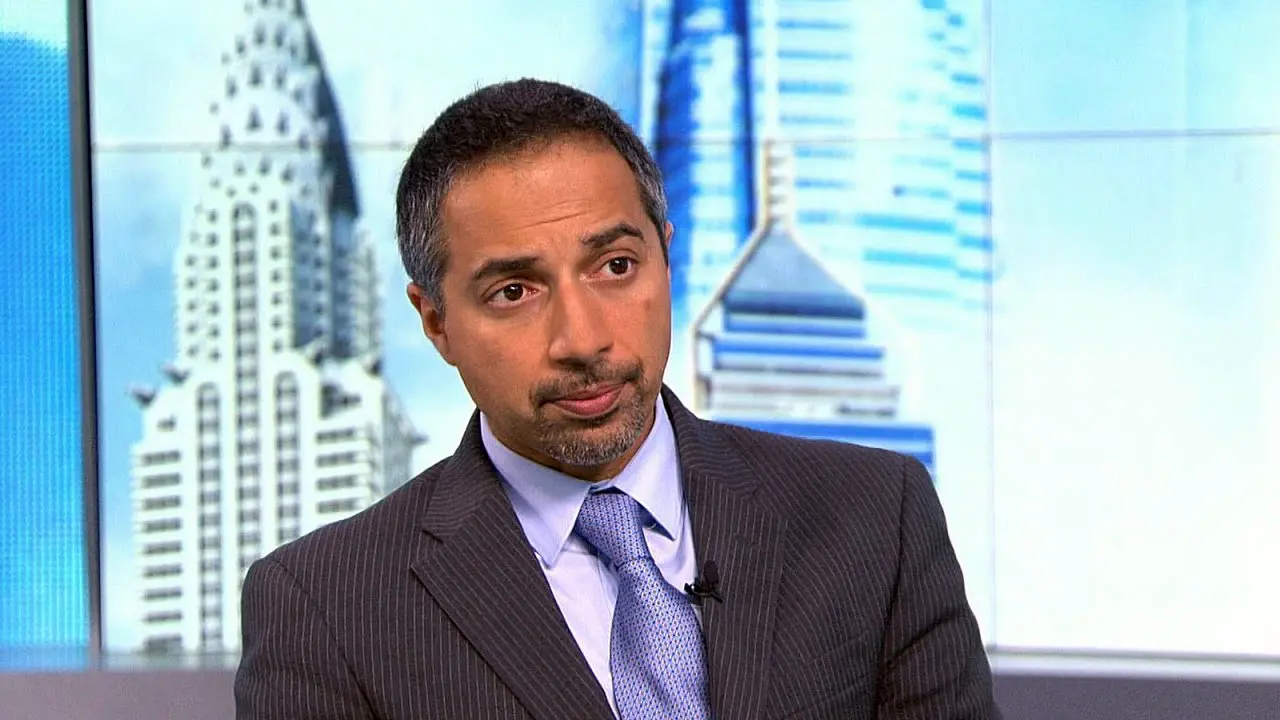
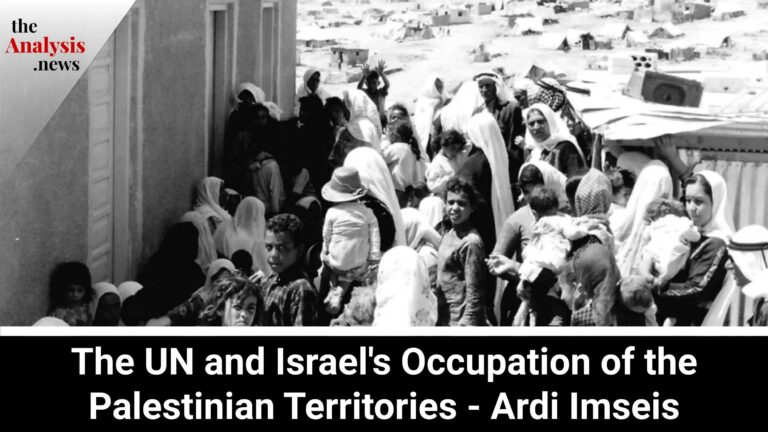
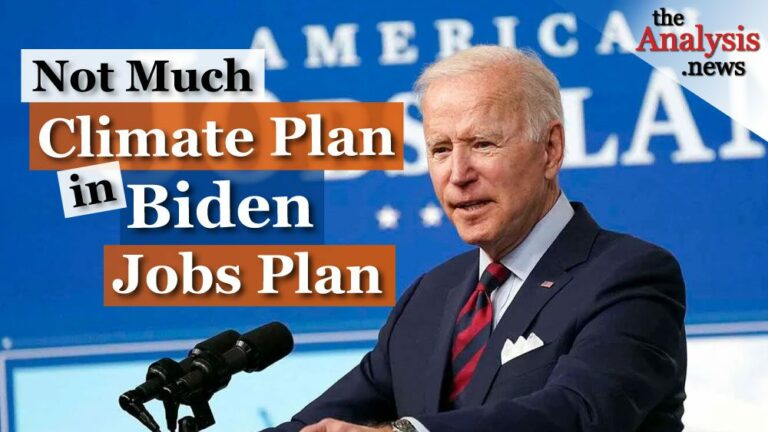
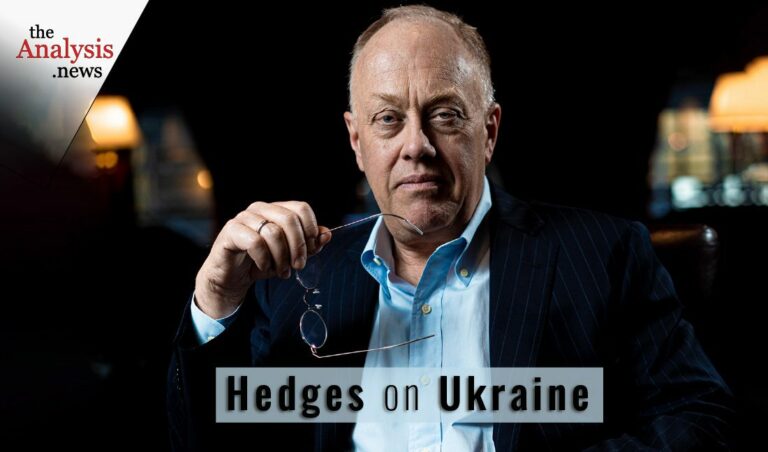
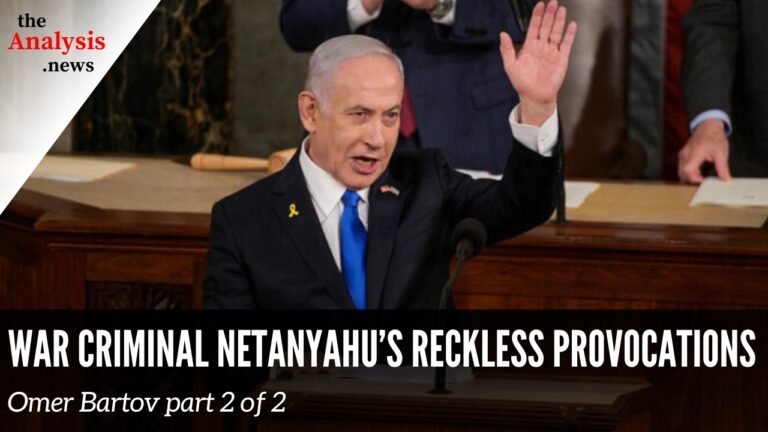
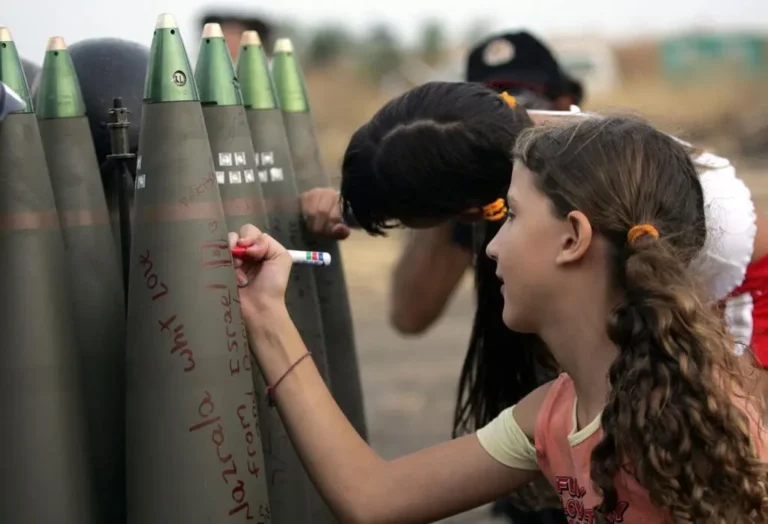
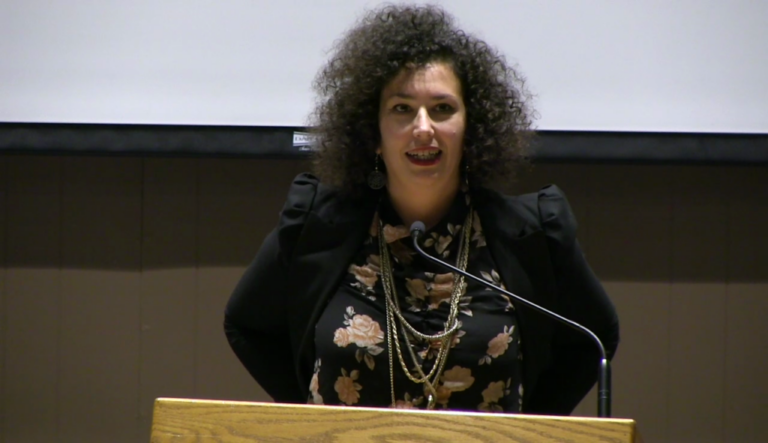
I have to disagree with Trita on this one. Iran is too valuable of a prize for the US to simple create another failed state in it’s wake. What they really want is a pliant puppet state filled with local collaborator oligarchs of the lowest order, the sort of people you see around this admin, the Guidos, the Guo Wenguis, these type of characters, the these plantation owner, casino owner, pimp, types, to help them loot the country for decades to come. I think leaving a country as large as Iran as a failed state just isn’t that likely and too destabilizing and risky. Iran would manage to form some new system out of that primordial ooze, why risk it? The US would more likely install like I said a pliant puppet state which rules with an iron fist to with the objective of looting. Iran is too big of a prize for anything less than this. I’m not suggesting the US is capable much less willing to engage in the kind of nation building of the past eras, but I just think it’s a little alarmist and irrational to assume they’d pursue the failed state strategy with such a valuable geopolitical prize. It leaves too much money on the table as they say. And what do they care about if not money and power?
That’s programming that won’t get government grants. Great job Paul. Great job Trita.